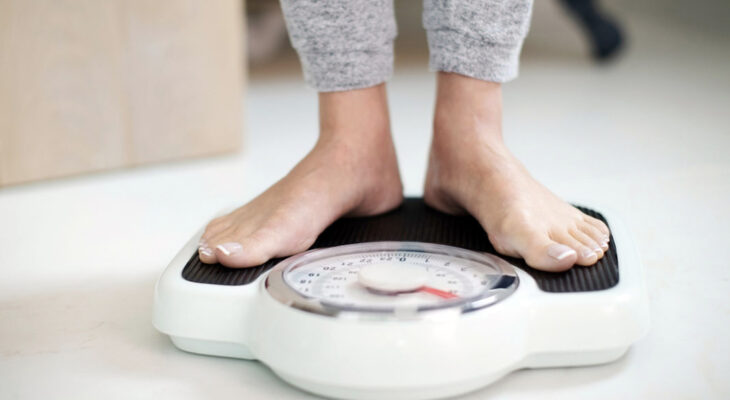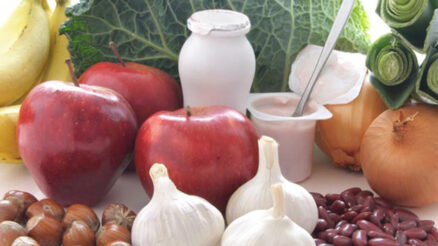If weight gain is what troubles you despite following the same diet and routine, then you are not alone. Many people tend to gain weight instead of losing even with the same routine and diet that they used to take earlier. It is because of the link that exists between age and weight.
As a person reaches 30, the body requires less energy which makes it harder to lose weight with the same diet and habits. Likewise, as soon as a person steps into his 40s, certain changes occur in the body including hormonal changes, metabolism changes, and muscle loss. All these changes make it harder to burn extra pounds and maintain the same waistline.
What Makes It Harder To Lose Weight?
Awareness and knowledge about body changes that occur as a person gets older enable them to adopt a better approach. It is helpful in making smart choices that assist easy and gradual weight loss. Let us understand some bodily changes which make weight loss a tough deal
1. Muscle Loss
With age, muscles are lost; it is named muscle atrophy. A young person has comparatively more muscles as compared to an older person. It is also different from losing muscle tone and shape; rather, it is tissue loss. Muscles give out more calories as compared to fats. Inactive people usually lose 3%-5% of muscle mass with each preceding decade after the 30s.
Even if you are active, you will still lose some muscle as a by-product of aging. As a result, less energy is required by the body in older adults, and hence weight loss becomes difficult.
2. Stress
One of the main causes that also make it difficult to lose weight in older adults is stress. Stress makes it difficult to maintain a healthy weight and results in weight gain. Too much stress triggers the release of the stress hormone cortisol.
Cortisol onset a certain pattern of behavior that results in unnecessary hunger and sugar cravings. In addition, it also slows down metabolism. All this makes it difficult to shed weight. On the contrary, it eases weight gain.
3. Slow Metabolism
Metabolism is the rate at which the body processes food and drink to get energy. Aging also affects metabolic rate. There is no specific age after which metabolic rate tends to move towards decline. However, it is estimated that after 20 years, with each preceding decade, there is a decline by 10% in metabolic rate. As a result of this, later in life, weight loss becomes much harder.
4. Hormonal Changes
Aging is often accompanied by hormonal changes that make it hard to lose weight. Especially in women, hormonal changes associated with menopause increase the difficulty of losing weight. Menopause and the years nearby menopause result in behavioral changes such as mood swings.
Mood swings make it unable to stick to exercise routine and diet restrictions and thus results in weight gain. It might also result in fat accumulation, more specifically around the belly area. Even men face a decline in levels of testosterone as they reach the age of 40.
5. Declined Growth Hormone
A significant decline in growth hormone is among many changes that take place with aging. It occurs in both genders. A decline in growth hormone normally occurs after 30 years, and it is highest during puberty. A decline in growth hormone is also interlinked with a decrease in lean body mass and more fat storage, thus making it difficult to maintain a healthy weight.
Tips To Prevent Weight Gain
1. Avoid Alcohol
Studies suggest that alcohol consumption may possibly result in weight gain. This happens because alcohol makes it difficult to burn fat, and furthermore, it increases hunger. Therefore it is better to avoid or limit alcohol intake, especially with large age figures.
Other than effects on weight changes, alcohol consumption also has much harm to health. It is, therefore, mindful to look for ways that help in handling alcohol abuse. If addiction is not severe, then a 30 days rehab program offered by many centers can help in dealing with it.
2. Make Each Mouthful Count
Making sure that whatever goes into your mouth is nutritious and worthy helps to avoid unhealthy food. It is better to opt for more natural food options rather than processed food. Fresh fruits, vegetables, whole food all make up healthy, nutritious food choices that are relatively low on calorie count too.
3. Watch Portion Sizes
As a person gets older, he requires less energy and consequently less food to meet energy requirements. Thus it is wise to shrink portion sizes with age based on the need. Limiting portion size is very crucial as the excess food required to derive energy is converted and stored in the form of fats.
4. Mix Exercises
As the body gets older, it requires a blend and variation of exercise to meet body requirements to lose weight. Using the combination of aerobics and weight training might work better. Aerobics helps in boosting cardiovascular activity and burning more calories, and weight training assists in strengthening and building muscles.
5. Stay Hydrated
Staying hydrated has many health benefits, and it also helps with weight loss. Staying hydrated makes a person feel fuller, and consequently, he will eat lesser. Also, opting to quench thirst with water instead of fizzy drinks also helps in avoiding gaining extra pounds. Thus be watchful of your thirst and keep yourself hydrated.
6. Stress Less And Sleep Well
Stress makes it hard to stick to a regular routine of eating and exercising, thus lookout for ways to manage stress. A blend of meditation and exercise may provide a dual benefit to relax and shape the body. Likewise, it is important to manage sound sleep; though it becomes hard to manage sleep as an individual gets older, there are still many health benefits of it.
Take Away
Weight maintenance becomes difficult as you get older. There are numerous reasons which make it difficult to lose weight which include several changes in hormones and slow metabolism. However, adopting several tips can help in a more practical approach to lose weight.





